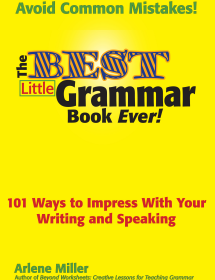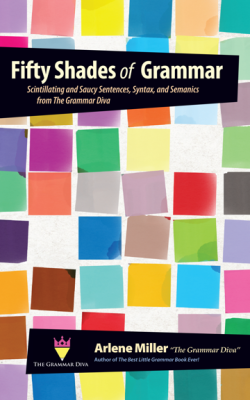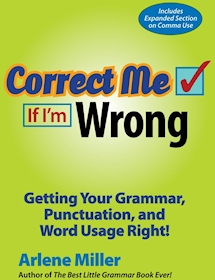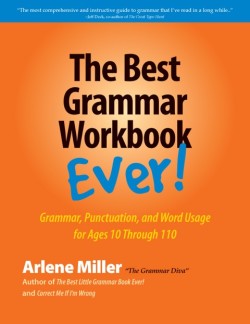 Well, it has been two years since the last New Year Resolution Post. And we are probably still trying to lose weight, get to the gym more often, be a better parent or friend or spouse, stop smoking, write that book, start that new business, and on and on. Well, here are some grammar resolutions for 2016 — and no, they aren’t the same ones as two years ago!
Well, it has been two years since the last New Year Resolution Post. And we are probably still trying to lose weight, get to the gym more often, be a better parent or friend or spouse, stop smoking, write that book, start that new business, and on and on. Well, here are some grammar resolutions for 2016 — and no, they aren’t the same ones as two years ago!
1. I resolve never to correct anyone’s grammar—except in a published book or on TV or radio where the speaker is getting paid money to talk! Don’t correct your friends — even on Facebook — unless they specifically ask.
2. I resolve to form an opinion about the Oxford comma and to feel no guilt whether I want to use it or not. But please, be consistent in your use within the same piece of writing. Either use it or don’t — unless something would be unclear without it — or with it.
3. I resolve to not even think about separating two sentences with a comma unless there is a conjunction (like and, but, or so) present. A comma alone cannot separate two complete sentences. Try a semicolon or a period.
4. I resolve to learn the forms of the darn verb “to lie”: to realize that it is so confusing because lay is the past tense of lie, in addition to being it own present tense verb — and that lain really is a word.
5. I resolve to never use its’, because someone made it up. With all the confusion between its and it’s, the last thing we need is a third option! By the way, please also avoid on accident. It is by accident — but on purpose. And while we are at it, it’s not a whole nother story; it’s a whole other story. Or another whole story.
6. I resolve to pronounce the word mischievous correctly. The accent is on the first syllable (mis), and the last syllable is pronounced vus, not vius.
7. I resolve to learn how to spell out BBQ, and to realize that there is no Q in it at all (barbecue). And there is no ham in hamburger. . .
8. I resolve to eliminate or limit my use of a lot — and to always use it as two separate words.
9. I resolve not to put an s on toward (British use towards; American English uses toward, although no big deal). Also it is in regard to, not in regards to. And there is no such word as anyways — it is anyway.
10. I resolve to understand that good grammar improves my communication skills and the image I project to others. However, it isn’t everything. And if I can’t figure something out, there is always a good grammar book around –speaking of which . . .
If you have purchased one or more of my books this past year, thank you so much! And I always appreciate a review on Amazon or elsewhere. And I do plan more books for 2016!








10. *there
Best wishes in the new year.
Thank you for the comment. Are you adding there and their and they’re or did I spell it wrong? I guess I figure people have that one by now???? Well, maybe not! Happy New Year!
Are we witnessing the “passing” of “death”? Is so-called political correctness leading to avoidance of the use of the words “death” and “dying”? Isn’t passing something you do when taking a test, or driving faster? I find death to be much more specific and not ambiguous.
How about kicking the bucket or pushing up daisies???? LOL. Happy New Year. And I am with you. I guess it is a scary word to say.
I find considerable misuse of “comprise.”
I almost put that one in, but … as Facebook would say … it’s complicated! Happy New Year!
I often see the use of a gerund where the subject is ambiguous. Example: “He praised the book explaining the wonders of life.”
I always try to avoid ambiguity in writing.
Bob Richter
Thank you for the comment. Interesting point and very ambiguous. I thinking explaining is a participle there. Since it is placed right after book, it apparently describes book, but you are right. It is ambiguous and should probably be rewritten.